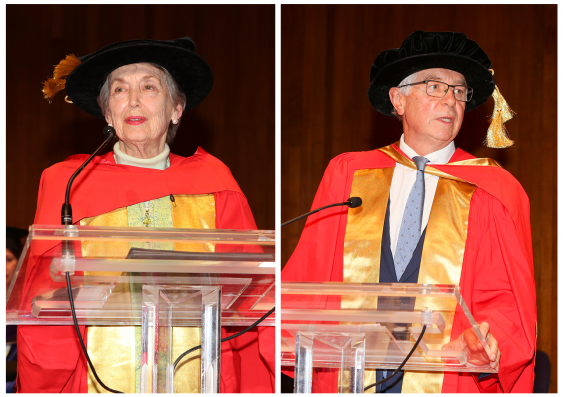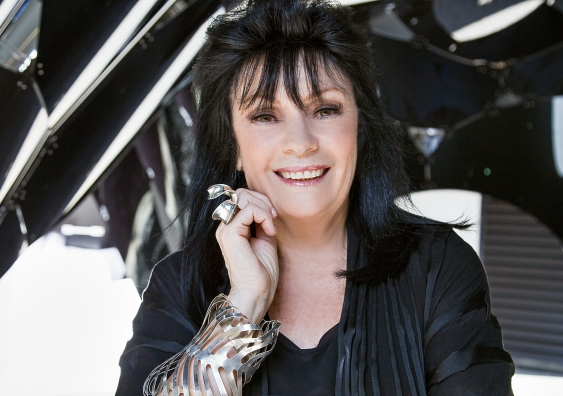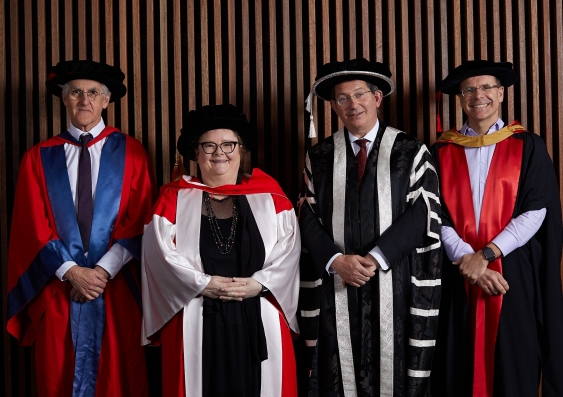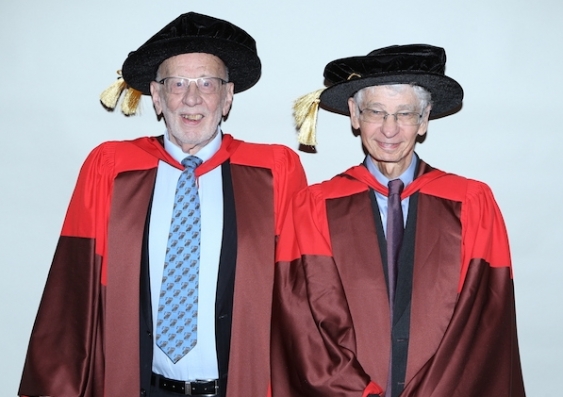Indigenous Elder Uncle Vic awarded honorary UNSW degree
2024-08-22T11:34:00+10:00

Uncle Vic Simms says he has enjoyed every moment of his work with UNSW which includes providing cultural advice, guidance and education sessions.
Photo: UNSW
Uncle Vic has devoted his life to music and serving community, with a focus on improving the health and wellbeing of Aboriginal people. 
Senior Bidjigal Elder William Victor Simms has been awarded UNSW Sydney‚Äôs highest honour ‚Äď an honorary doctorate in recognition of his service to the community.¬†
Uncle Vic, as he’s known to many, is an international recording artist and was the first Aboriginal musician to appear on commercial TV in Australia. Along with a stellar music career, Uncle Vic has worked in various roles within Indigenous affairs portfolios for over four decades and led cultural awareness programs in schools, universities and the tourism sector.
In the last 15 years, Uncle Vic’s leadership and vision have substantially contributed to ensuring UNSW adheres to cultural protocols. His work, most notably with UNSW Medicine & Health, included running cultural education sessions through Nura Gili with both current and future Indigenous students, connecting them to culture and the history of Bidjigal Country.
As the COVID-19 pandemic affected face-to-face sessions for students and staff, Uncle Vic also innovatively co-created ‚ÄėVirtual On Country Field Trips‚Äô which were delivered to first-year medical students through 2021 and 2022.
‚ÄúThe University Council, noting his eminent service to music, health, and service to the community, resolved that it would be fitting that the degree of Doctor of the University, honoris causa, were to be conferred on William Victor Simms,‚ÄĚ Dean of UNSW Medicine & Health, Professor Cheryl Jones, said at the faculty ceremony on Wednesday.¬†
‚ÄúToday, we admit him to the University‚Äôs highest honour.‚ÄĚ
Uncle Vic said he was overwhelmed by the recognition.
‚ÄúIt certainly bowls you over being here and receiving this award. But I‚Äôve been accepted into this campus and everything about it has been forthcoming,‚ÄĚ he said.
‚ÄúI‚Äôm almost 80 years of age but you never stop learning. You never stop believing in culture.‚ÄĚ
Deadly artist
Uncle Vic is one of 10 children and was born on La Perouse Mission in Sydney’s southeast in 1946. He began a music career in 1957 at the age of 11, singing at the Manly Jazzorama Music Festival. During his career as a recording artist, he performed with music legends such as Shirley Bassey, Johnny O’Keefe, Col Joye, and Robie Porter. He released his first single, Yo-Yo Heart with Festival Records, at a ripe 5 years of age. The highlight of his recording career, he says, was being honoured with a Deadly Award for Outstanding Contribution to Aboriginal Music in 2001.
Walking with students and staff
Over the last five years, Uncle Vic has worked closely with UNSW Medicine & Health to provide cultural advice, guidance, and education sessions. This includes advice to the Aboriginal and Torres Strait Islander Sovereign Working Group, and Welcome to Country and smoking ceremonies. 
He also delivered inclusive ‚ÄėOn Country‚Äô educational experiences to at least 1200 first-year medical students and staff, walking with them and sharing his cultural knowledge on Bidjigal Country, based on Aboriginal ways of knowing, being and doing. Uncle Vic uses these experiences to highlight the strengths of Bidjigal culture, the impact of trauma and how Aboriginal and Torres Strait Islander health and wellbeing is still being impacted today.
Uncle Vic encouraged graduates in the audience to go out into communities and ‚Äúbring home the good things that happen‚ÄĚ.
‚ÄúI‚Äôve been through the stages of having people dictate where you go and where you can‚Äôt go through my life (but) I‚Äôll continue, and I‚Äôll persevere in trying to bring us all together. Because we have to come together, we can‚Äôt do it on our own,‚ÄĚ he said.
Media enquiries
For enquiries about this story, please contact Stefanie Menezes.
Tel: +61 2 9065 3225
Email: s.menezes@unsw.edu.au






